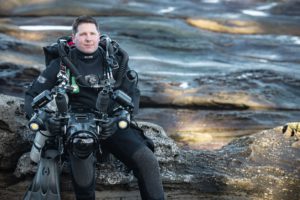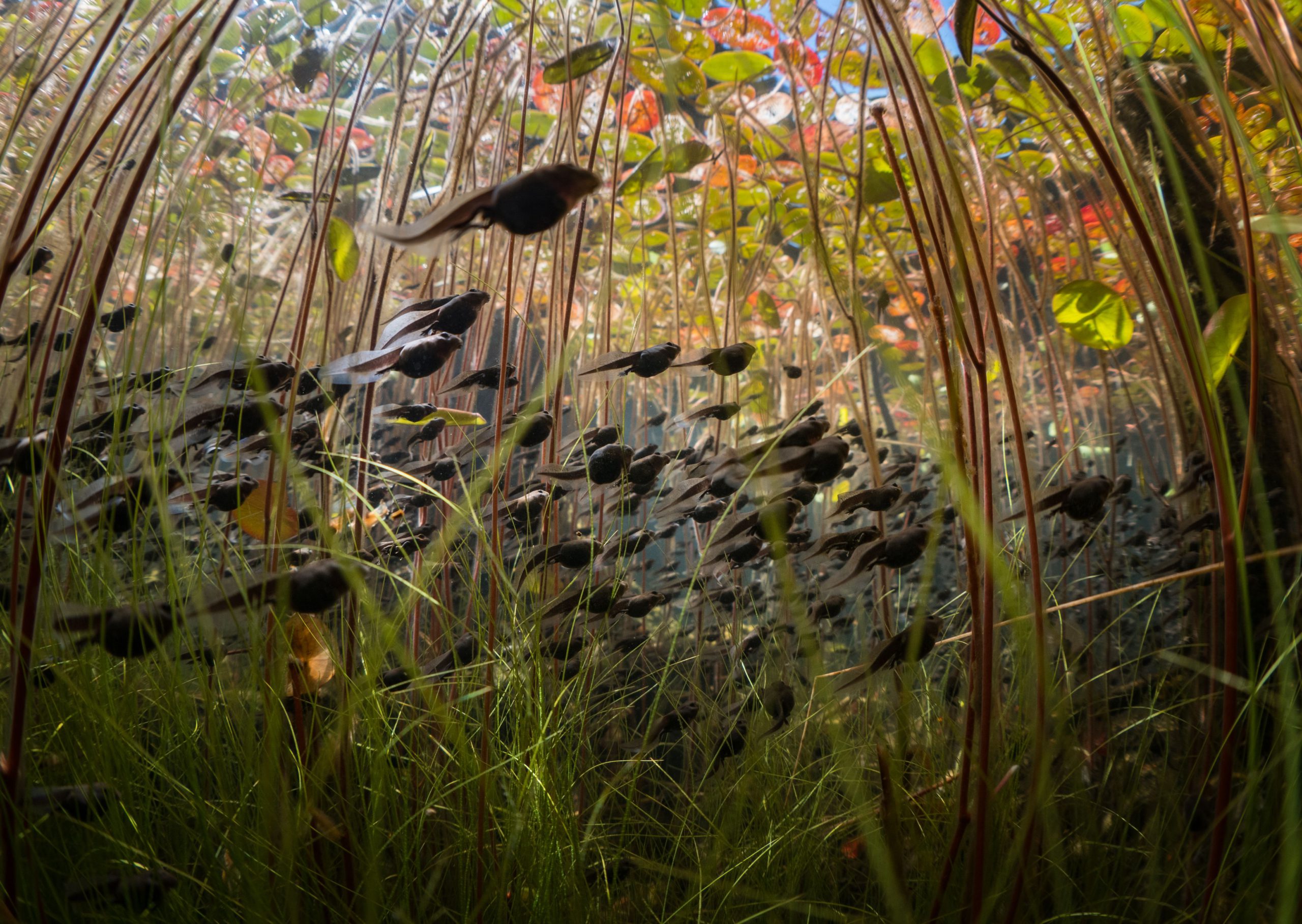Four years of filming tadpoles are paying off for Vancouver Island videographer Maxwel Hohn.
He and fellow filmmaker Russell Clark’s 2020 documentary short, Tadpoles: The Big Little Migration, is up for a major award.
It’s a finalist in the ‘2021 Animal Behavior Short Form’ and ‘Ecosystem Short Form’ categories in the prestigious Jackson Wild Media Awards.
Hohn told Vista Radio that their self-funded passion project started with him following a trickle of tadpoles in a secret location on northern Vancouver Island.
“I saw like one or two or three at a time, and then all of the sudden thousands and then tens of thousands and it was this big migration that was happening just a couple feet below the water,” Hohn shared. “I was dumbfounded by the experience, it was just so amazing to see.”
Each summer Hohn would return to the same location to learn more about the tadpoles, just by watching their behaviours.
Edited and produced in the Comox Valley, Hohn says the mini documentary, like its tiny subject matter, “is a small entity in a big pond.”
“We are humbled to have our film alongside so many inspiring productions. Our story of the western toad tadpole seems to have really connected with people all over Canada, and the world. It’s being played in schools, it’s been given over a dozen film laurels, it caught the attention of TV production companies, and most importantly, it’s kept people entertained in a unique way.”
He added that it’s an annual international media competition considered to be the highest bar of achievement in natural history filmmaking and is commonly referred to as “the Oscars for natural history filmmaking.”

This year’s submissions included over 750 entries from nearly 30 different countries.
Finalists were selected by a panel of 150 international judges who together screened over 3,000 hours of media.
Hohn and Clark are in good company, as other finalists this year include: BBC Natural History unit, Apple TV, David Attenborough’s A Life On Our Planet, Netflix, and Howard Hall.
“The film really connected to people’s childhood memories of toads and tadpoles,” adds Clark, the film’s writer and editor.
“It touched a nerve with the public and with the natural history film industry. To see it as a finalist at Jackson Wild is a huge honour.”
“The film is as independent as you can get, and a true product of British Columbia’s incredible natural history,” Hohn said.
A panel of final judges from around the globe will select the winners over the coming weeks. They’ll be announced during the Jackson Wild Media Awards gala on Sept. 30th.
“The judges selected an incredible slate of inspiring finalists with powerful messaging and stunning imaging. These richly woven stories reflect diverse perspectives from around the planet, and are deeply personal and purpose-driven,” said Jackson Wild executive director Lisa Samford.
“But, more importantly, they inspire an inherent connection to the species, places and issues that are critical to our survival on this beautiful planet and amplify the importance of what we as individuals can do to make a difference in restoring and protecting them while the opportunity still exists.”
2021 will mark Jackson Wild’s first hybrid conference, with the in-person conference and awards event live streamed to global audiences unable to travel. E
Event speakers and delegates will include innovative filmmakers and industry thought-leaders, alongside leading conservationists, photographers, and scientists from across the globe, all engaged in conservation, nature and science media.
Since Tadpoles, Hohn and Clark produced another ‘minimentary’ – Call of the Coastal Wolves – which went on to win several other film festival accolades. They have both spent this year filming natural history for various television productions, and have several of their own films currently in production.
Tadpoles: The Big Little Migration is online now and available to a global audience for free.
The video can be embedded onto any website from YouTube and Vimeo.






